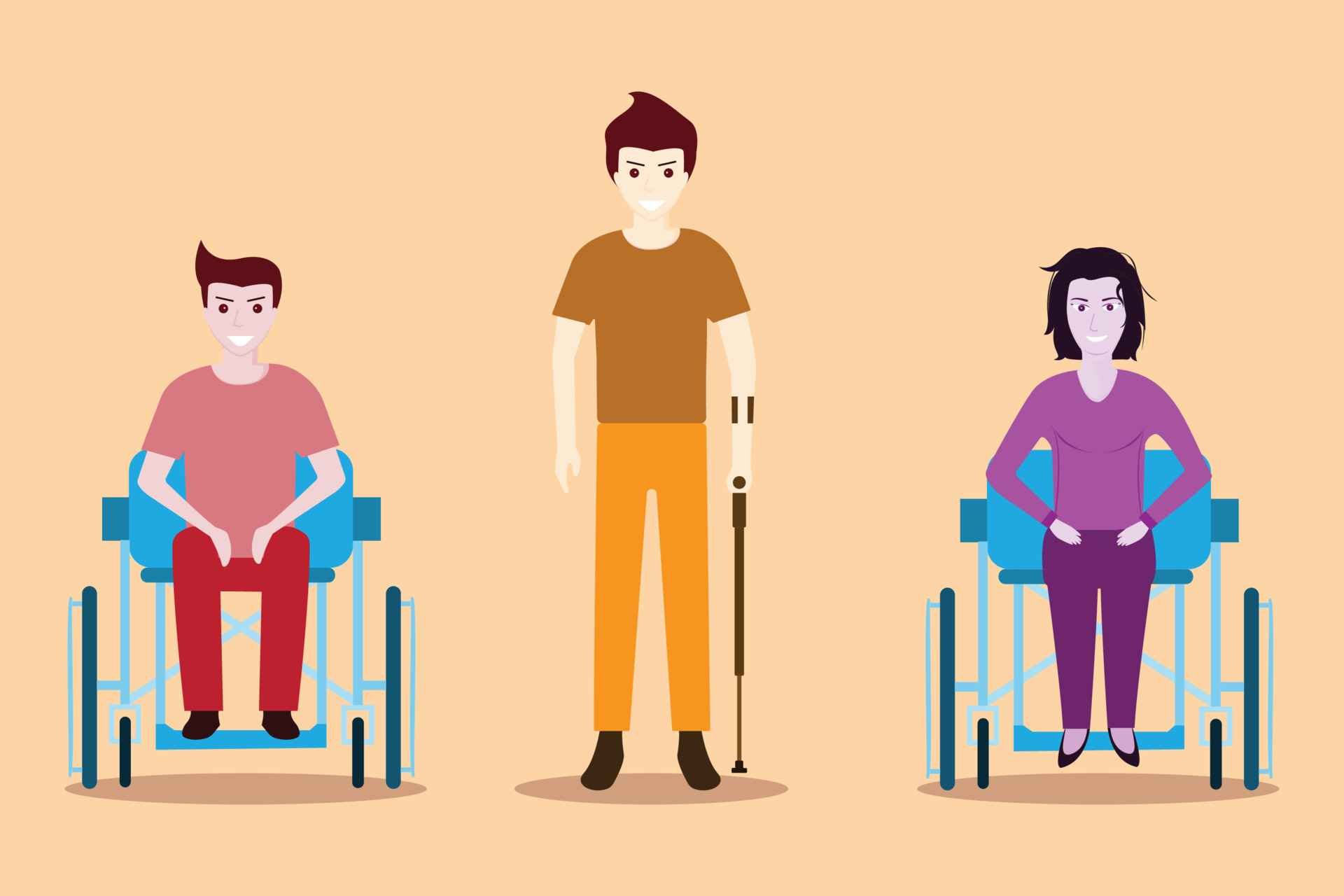The Connection Between ADHD and Chronic Pain
ADHD and Chronic Pain
The Connection Between ADHD and Chronic Pain: A Dopamine Perspective. Attention Deficit Hyperactivity Disorder (ADHD) is a neurodevelopmental disorder that affects millions of children and often continues into adulthood. ADHD is characterized by an ongoing pattern of inattention, hyperactivity, and impulsivity that interferes with functioning or development. On the other hand, chronic pain is a persistent pain that lasts for weeks, months, or even years. It can occur anywhere in the body and can feel different in various affected areas. While ADHD and chronic pain may seem unrelated, recent research has uncovered a surprising connection between the two conditions, with dopamine playing a key role in this relationship.
ADHD: A Brief Overview
ADHD is one of the most common neurodevelopmental disorders of childhood. It is usually first diagnosed in childhood and often lasts into adulthood. Children with ADHD may have trouble paying attention, controlling impulsive behaviors, or may be overly active. While it is normal for children to have trouble focusing and behaving at one time or another, children with ADHD do not grow out of these behaviors. The symptoms continue, can be severe, and can cause difficulty at school, at home, or with friends.
The Connection Between ADHD and Chronic Pain
Chronic Pain: An Overview
Chronic pain is any pain that lasts for 12 weeks or more. It can occur anywhere in the body and ranges from mild to severe. It can be continuous or episodic, and the quality of the pain can differ depending on the underlying cause. Chronic pain can be described as aching, burning, sharp, or dull. It can lead to other health problems, including fatigue, sleep disturbance, decreased appetite, and mood changes.
The Intriguing Connection: ADHD and Chronic Pain
While ADHD is associated with difficulty paying attention and hyperactivity, and chronic pain is associated with prolonged physical suffering, research has found an unexpected overlap between these two conditions. Several studies suggest that individuals with ADHD are more likely to experience chronic pain conditions and vice versa. This connection is not merely coincidental but is believed to be rooted in shared biological mechanisms, namely, the role of dopamine.
Role of Dopamine
Dopamine is a neurotransmitter, a type of chemical messenger that transmits signals in the brain and other areas of the body. It plays a vital role in how we feel pleasure and is a big part of our unique human ability to think and plan. Dopamine plays a crucial role in both ADHD and the perception of pain, making it a possible link connecting these two conditions.
In individuals with ADHD, there are often abnormalities in dopamine transmission. Some theories suggest that ADHD may be a result of dopamine receptors not working as they should, which can lead to symptoms like inattention and impulsivity.
On the other hand, dopamine also plays a key role in the perception of pain. It is part of the body's natural pain-fighting system and is involved in both the anticipation of pain and the body's response to it. If dopamine transmission is impaired, it can potentially increase the perception of pain, leading to conditions like chronic pain.
Neuroinflammation: Another Connecting Factor
Another theory that could explain the connection between ADHD and chronic pain is neuroinflammation - inflammation that occurs in the brain. Neuroinflammation has been noted in people with ADHD and those with chronic pain. This inflammation could potentially be a contributing factor to the development of both conditions.
Co-morbid Conditions: ADHD and Chronic Pain
Studies have found that a significant number of individuals diagnosed with ADHD also have at least one other condition. Depression, OCD, anxiety, and learning disabilities often co-occur with ADHD. Interestingly, chronic pain is also a common co-morbid condition with ADHD. Research estimates that around a quarter of chronic pain patients are also diagnosed with ADHD.
ADHD and Fibromyalgia Syndrome
Particularly, researchers have discovered a higher co-occurrence of ADHD in adult patients with fibromyalgia syndrome (FMS), a type of chronic pain disorder. FMS symptoms may include musculoskeletal pain, chronic fatigue, sleep disturbance, and cognitive impairment. Cognitive impairment may include difficulty with concentration and attention, forgetfulness, and problems with word-finding and word fluency. Many patients with FMS often report that this cognitive impairment is more disabling than the chronic pain they experience.
ADHD and Chronic Pain: Symptom Overlap
There is also a significant overlap in the symptoms of ADHD and chronic pain. Both conditions can cause:
Distractibility
Sleep issues
Difficulties sustaining or dividing attention
Difficulty finishing tasks
Inability to inhibit irrelevant stimuli
Emotional dysregulation
Treatment Approaches: ADHD and Chronic Pain
The connection between ADHD and chronic pain is not just academic. It has significant implications for how both conditions are treated. The standard treatment for ADHD often involves counseling or therapy, ADHD coaching, and medication to support or improve brain function. Chronic pain, on the other hand, is typically managed by trying to alleviate the severity of symptoms. Treatments can include therapy, physical therapy, chiropractic care, medication, and alternative medicines like massage or acupuncture.
The Role of ADHD Medication in Chronic Pain Treatment
Interestingly, some studies suggest that medications used to treat ADHD could also provide relief for chronic pain symptoms. For example, stimulant medications used to treat ADHD can help improve brain function, which could potentially alleviate chronic pain symptoms. However, more research is needed to confirm this potential benefit and to understand how it works.
Conclusion
The connection between ADHD and chronic pain is a relatively new area of research, but it's one that holds great promise. Understanding how these conditions are interconnected could lead to more effective treatments for both. It could also lead to better diagnostic tools and a more comprehensive approach to managing patients with overlapping symptoms. As our understanding of these complex conditions continues to grow, it's clear that a holistic approach that considers both mental and physical health is crucial.
Remember, if you're struggling with ADHD, chronic pain, or both, it's important to seek help from a healthcare professional. They can provide you with the most accurate information and guide you towards the best treatment options for your specific needs.
Check out our other posts and our book recommendations to learn more!
The Chronic Pain Blog 💗
DISCLAIMER: INFORMATION PROVIDED VIA OUR CONTENT (VIDEOS, AUDIOS, BLOGS, PDFS, POSTS AND OR COMMENTS) ARE FOR GENERAL INFORMATION PURPOSES ONLY AND NOTHING PUBLISHED CONSTITUTES ADVICE UPON WHICH YOU SHOULD RELY. WE DO NOT ACCEPT LIABILITY UNDER ANY CIRCUMSTANCES AND ARE NOT RESPONSIBLE FOR THE CONTENT OR ACCURACY, OR FOR ANY OPINIONS, VIEWS OR VALUES EXPRESSED IN ANY VIDEOS, BLOGS, POSTS AND OR COMMENTS SUBMITTED BY USERS AND THOSE REMAIN SOLELY THE OPINIONS, VIEWS AND OR VALUES OF THE RELEVANT USER.
Sources:
Bou Khalil, R., Khoury, E. and Richa, S. (2023). The Comorbidity of Fibromyalgia Syndrome and Attention Deficit and Hyperactivity Disorder from a Pathogenic Perspective. [online] Oup.com.
Kerekes, N., Lundqvist, S., Schubert Hjalmarsson, E., Torinsson Naluai, Å., Kantzer, A.-K. and Knez, R. (2022). The associations between ADHD, pain, inflammation, and quality of life in children and adolescents—a clinical study protocol. PLOS ONE, 17(9), p.e0273653.
Kerekes, N., Sanchéz-Pérez, A.M. and Landry, M. (2021). Neuroinflammation as a possible link between attention-deficit/hyperactivity disorder (ADHD) and pain. Medical Hypotheses, 157, p.110717.







